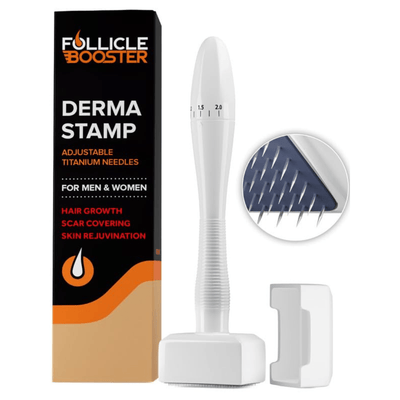Hair loss is part of the expected growth process, and it is normal. According to a study, the average person loses between 50 to 100 hair daily as part of this natural regrowth cycle. But when shedding and thinning hair has been an uphill battle, from early morning brush to quick showers and even to lying in bed, it might lead to a severe concern.

Losing hair while sleeping is commonly associated with the following:
Pillow Type

If it's too hard or soft, it often causes you to toss and turn, which can create tangles and lead to hair breakage from the roots.
Sleeping on your back

When you sleep on your back, gravity is working against you and putting more pressure on your head than usual. This causes hair breakage at the roots and makes you appear like you've been sleeping with wet hair!
Sleeping with wet hair

When your hair gets wet, it expands and becomes heavy, which puts excessive pressure on the root of each strand which can cause breakage or, even worse, traction alopecia, where your hair starts coming out in clumps.
Not brushing your hair.

The scalp has natural moisture, which tends to protect the hair. It needs to be stimulated often to prevent dryness and flakiness. Regular brushing/combing, especially before bedtime, will maintain the natural oil.
Sleeping with Hair Tie

Too lazy to untie your hair? Well, think again. This is commonly neglected yet affects the hair the entire time without you noticing. Make it a habit to undo and brush your hair to improve blood circulation in the scalp and prepare it for a goodnight's sleep.
The best way to prevent
hair loss while sleeping is to:
Use a satin-type pillow.

The satin pillow can help protect your scalp from friction as you sleep by allowing it to slide across the surface instead of rubbing against it. This will reduce the chances of breakage or pulling from your hair being tugged or pulled on during the night. An improper pillow can cause severe headaches and back pain, sometimes leading to baldness.
Use a satin cap or bonnet.

Use this when sleeping on a satin pillowcase to protect your hair from breaking and pulling out at night. It does not matter if you have long or short hair; this cap will keep it safe from being tugged at while you sleep. Wear it overnight and remove it right before taking a shower in the morning to keep your hair healthy and strong.
Be sure to untie and dry your hair when sleeping.
This will prevent too much pressure to take in your hair. And dry your hair with a gentle tower tap rather than a hair blower. This is to preserve the healthy texture and strength.
Apply a hair moisturizer/hair mist

Coating your hair with moisturizer or mist will protect it from scalp irritation and breakage.
Hair Loss while Sleeping has become common these days. Many factors, like stress, pollution, and poor diet, can contribute. But it would help if you hadn't panicked because most hair loss is temporary, and it usually falls back after a few months, especially when you incorporate a proven treatment such as
Follixil. Try to follow the recommendations above and start modifying your habits.



















